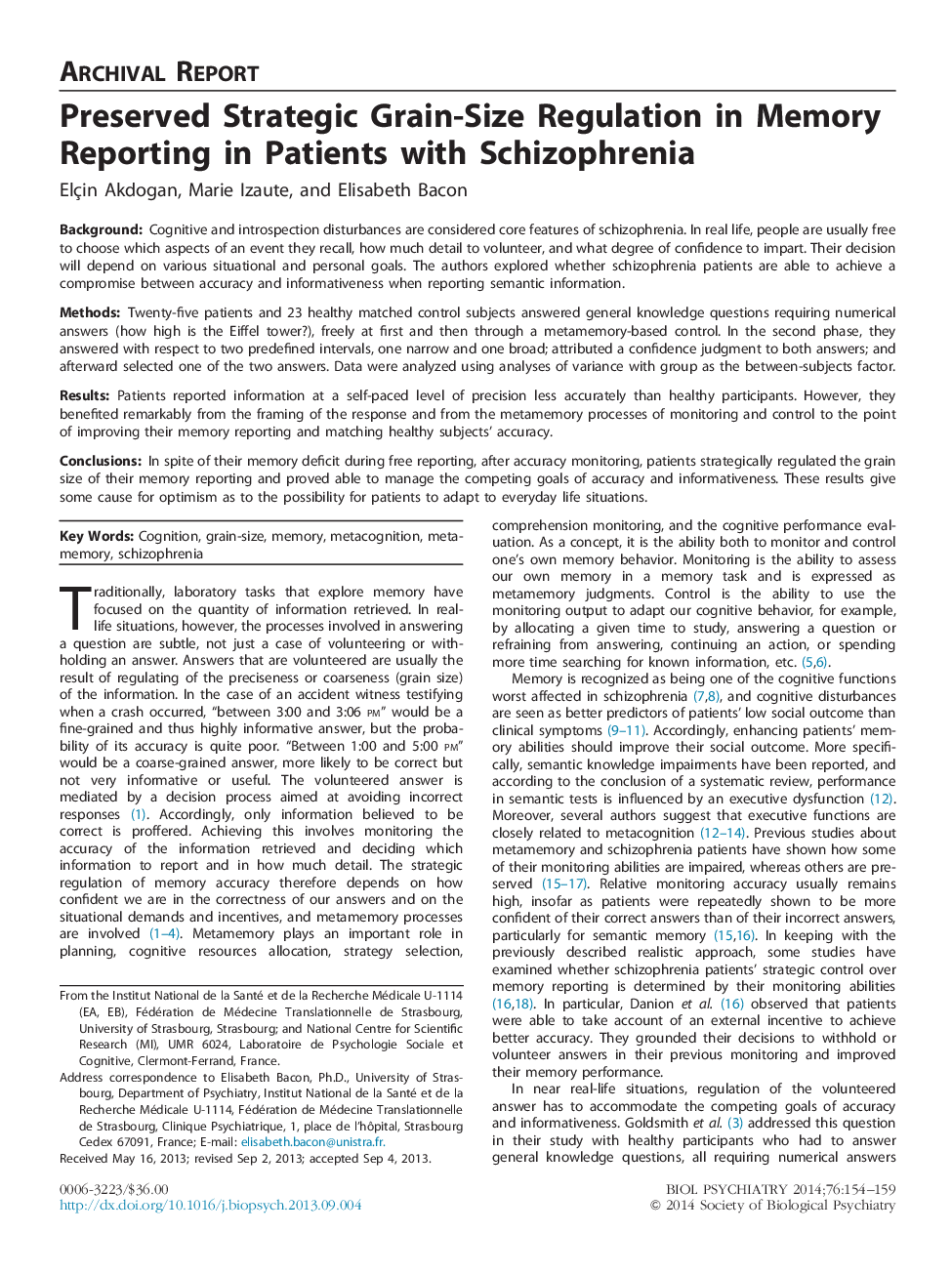| Article ID | Journal | Published Year | Pages | File Type |
|---|---|---|---|---|
| 4177726 | Biological Psychiatry | 2014 | 6 Pages |
BackgroundCognitive and introspection disturbances are considered core features of schizophrenia. In real life, people are usually free to choose which aspects of an event they recall, how much detail to volunteer, and what degree of confidence to impart. Their decision will depend on various situational and personal goals. The authors explored whether schizophrenia patients are able to achieve a compromise between accuracy and informativeness when reporting semantic information.MethodsTwenty-five patients and 23 healthy matched control subjects answered general knowledge questions requiring numerical answers (how high is the Eiffel tower?), freely at first and then through a metamemory-based control. In the second phase, they answered with respect to two predefined intervals, one narrow and one broad; attributed a confidence judgment to both answers; and afterward selected one of the two answers. Data were analyzed using analyses of variance with group as the between-subjects factor.ResultsPatients reported information at a self-paced level of precision less accurately than healthy participants. However, they benefited remarkably from the framing of the response and from the metamemory processes of monitoring and control to the point of improving their memory reporting and matching healthy subjects’ accuracy.ConclusionsIn spite of their memory deficit during free reporting, after accuracy monitoring, patients strategically regulated the grain size of their memory reporting and proved able to manage the competing goals of accuracy and informativeness. These results give some cause for optimism as to the possibility for patients to adapt to everyday life situations.
